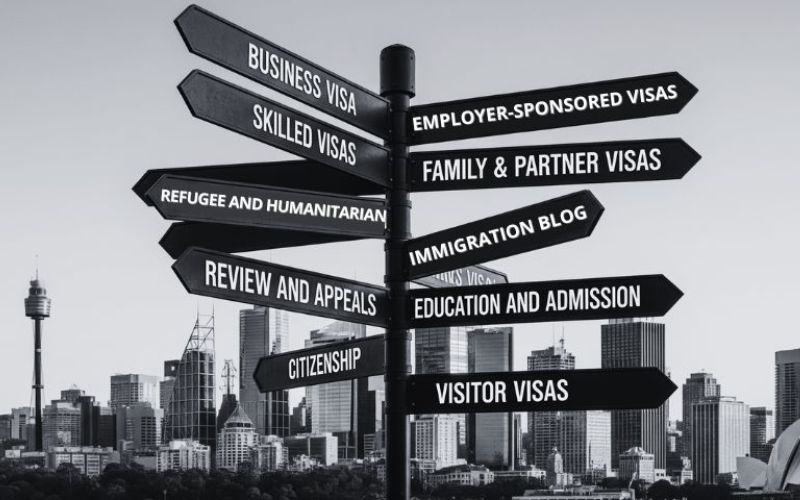If you’re considering migrating to Australia or managing a visa application, one question often comes up: Do I need an immigration lawyer? The short answer is: it depends. Your personal situation, visa type, and circumstances will determine whether you can navigate the process independently or require professional guidance.
However, Australian immigration law is notoriously complex. For most people, understanding the legislation, regulations, and procedural nuances is overwhelming. That’s where a reputable immigration lawyer can make a real difference.
Why an Immigration Lawyer Can Help
An immigration lawyer can quickly identify potential issues and provide clear advice about your prospects. Unlike migration agents, lawyers are qualified to assist with appeals in the Federal Court of Australia (FCA) and the High Court of Australia (HCA). This can be crucial if your application faces refusal or legal challenges.
Legal matters are always easier when guided by an experienced professional. Consider the stakes: most Australian visas carry significant lodgement fees—sometimes tens of thousands of dollars for family applications. A refusal may also affect your ability to apply for future visas (see Section 48 of the Migration Act). Given the potential financial and legal consequences, investing in expert advice early often saves money and stress in the long run. Many immigration law firms now offer fixed-fee models to simplify costs and make legal guidance more accessible.
What Immigration Lawyers Offer
Our team of immigration lawyers has extensive experience guiding clients through complex migration matters. We provide:
- Honest and accurate legal advice
- Clear explanations of your prospects
- Support throughout the application, appeal, or review process
Whether it’s a straightforward visa application or a complex case, having professional representation maximizes your chance of success.
Understanding Australian Migration Law
Australian migration law governs who can enter, stay, or leave the country. It is primarily contained in the Migration Act 1958 and the Migration Regulations 1994, with additional legislation such as the Australian Citizenship Act 2007.
Key responsibilities include:
- Granting visas to non-citizens
- Monitoring compliance with visa conditions
- Enforcing removal or deportation of unlawful non-citizens
- Managing special circumstances like maritime arrivals and protection visas
The Role of the Minister & Department of Home Affairs
The Minister for Home Affairs and the Department of Home Affairs (Department) control migration programs and enforce migration law. The Department oversees:
- Visa processing and applications
- Border control and enforcement
- Immigration-related policy and programs
The Department merges immigration functions with national security, emergency management, and multicultural affairs. It operates offices across Australia and internationally.
Tribunals and Courts
If a visa is refused or cancelled, appeals may be lodged with:
- Administrative Appeals Tribunal (AAT)
- Federal Circuit and Family Court
- Federal Court of Australia
- High Court of Australia
Lawyers are often required to navigate these appeals due to the complex legal procedures involved.
Key Immigration Legislation & Regulations
Migration Act 1958 – The core legislation governing entry, stay, and removal of non-citizens
Migration Regulations 1994 – Detailed rules and criteria for visa applications
Australian Citizenship Act 2007 – Defines citizenship, rights, and obligations
There are also numerous amendments and consequential acts that impact specific visa categories, regional processing, or fees.
Migration Agents vs. Immigration Lawyers
Anyone providing immigration assistance must be registered under the Migration Agents Registration Authority (MARA). This includes helping with visa applications and advising on immigration matters.
Exemptions at this time exist for:
- Lawyers providing advice about court proceedings (immigration legal assistance)
- Parliamentarians
- Employer sponsoring or nominating prospective employees
- Diplomats
- Members of offices of international organisations eg UNHCR
- Close family member – but not for gain
While migration agents can assist with application lodgements, only lawyers can provide court representation and legal advice on complex issues
The Visa Application Life Cycle
A typical visa application involves multiple stages:
- Pre-Application: Evaluation, client interviews, and advice on eligibility, risks, and requirements.
- Application Stage: Collect documents, complete forms, liaise with third parties, and lodge the application.
- Decision Stage: Department assesses documents and criteria, communicates outcomes, and records decisions.
- Post-Decision Stage: Handle appeals, cancellations, or changes in circumstances.
At every stage, lawyers ensure:
- Compliance with legal and procedural requirements
- Accurate submissions
- Effective responses to departmental requests
Why Expert Guidance Matters
Visa applications, appeals, and legal challenges require detailed knowledge of the Migration Act, Migration Regulations, and case law. A lawyer ensures that you:
- Avoid procedural mistakes
- Understand your rights and obligations
- Maximise the chance of a successful outcome
While not every visa application requires a lawyer, the stakes are high. Costs, refusal risks, and legal complexities make professional guidance a wise investment. By working with an experienced immigration lawyer, you gain clarity, confidence, and a far stronger chance of achieving your migration goals in Australia.
Disclaimer
The content of this article is for information purposes only. Whilst every effort has been made to ensure the accuracy of the materials contained here and incorporated by reference, this article is not intended to constitute legal or immigration advice or assistance.
No person should act on the basis of the material contained in this presentation without obtaining advice relevant to their own circumstances and without considering and taking professional advice as may be necessary.
For tailored advice and comprehensive assistance with your migration matter, contact our experienced Australian immigration lawyers today. You can reach us by email at admin@australianmigrationlaw.com.au or phone +61 407 662 682 to obtain further guidance.

